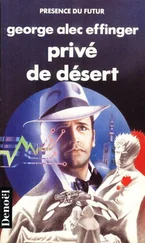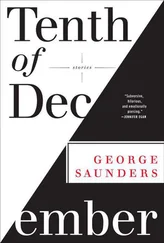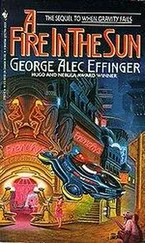The Arab guide screamed in Hilbert’s ear. It meant nothing to the mathematician. He watched in horror as Jehan knelt, as the headsman raised his weapon of office. When the fierce, bellowing cry went up from the crowd, Hilbert noticed that his suit was now spattered with small flecks of red. The Arab screamed at him again and tightened his grip on Hilbert’s arm until Hilbert complained. The Arab did not release him. With his other hand, Hilbert took out his wallet. The Arab smiled. Above him, Hilbert watched several men carry away the body of the decapitated girl.
The Arab guide did not let him go until he’d paid an enormous sum.
Perhaps another hour had passed in the alley. Jehan had withdrawn to the darkest part and sat in a damp corner with her legs drawn up, her head against the rough brick wall. If she could sleep, she told herself, the night would pass more quickly; but she would not sleep, she would fight it if drowsiness threatened. What if she should slip into slumber and waken in the late morning, her peril and her opportunity both long since lost? Her only companion, the crescent moon, had abandoned her; she looked up at fragments of constellations, stars familiar enough in their groups but indistinguishable now as individuals. How different from people, where the opposite was true. She sighed; she was not a profound person, and it did not suit her to have profound thoughts. These must not truly be profound thoughts, she decided; she was merely deluded by weariness. Slowly she let her head fall forward. She crossed her arms on her knees and cradled her head. The greater part of the night had already passed, and only silence came from the street. There were perhaps only three more hours until dawn….
Soon Schrödinger’s wave mechanics was proved to be equivalent to Heisenberg’s matrix mechanics. It was a validation of both men’s work and of the whole field of quantum physics as well. Eventually Schrödinger’s simplistic wave picture of the electron was abandoned, but his mathematical laws remained undisputed. Jehan remembered Schrödinger predicting that he might need to take just that step.
Jehan had at last returned to Gottingen and Heisenberg. He had “forgiven her petulance.” He welcomed her gladly, because of his genuine feelings for her and because he had much work to do. He had just formally developed what came to be known as the Heisenberg uncertainty principle. This was the first indication that the impartial observer could not help but play an essential, active role in the universe of subatomic particles. Jehan grasped Heisenberg’s concept readily. Other scientists thought Heisenberg was making a trivial criticism of the limitations of their experiments or the quality of their observations. It was more profound than that. Heisenberg was saying that one can never hope to know both the position and the momentum of an electron at the same time under any circumstances. He had destroyed forever the assumption of the impartial observer.
“To observe is to disturb,” said Heisenberg. “Newton wouldn’t have liked any of this at all.”
“Einstein still doesn’t like it right this very minute,” said Jehan.
“I wish I had a mark for every time he’s made that sour ‘God doesn’t play dice with the universe’ comment.”
“That’s just the way he sees a ‘wave of probability.’ The path of the electron can’t be known unless you look; but once you look, you change the information.”
“So maybe God doesn’t play dice with the universe,” said Heisenberg. “He plays vingt-et-un, and if He does not have an extra ace up His sleeve, He creates one — first the sleeve, then the ace. And He turns over more natural twenty-ones than is statistically likely. Hold on, Jehan! I’m not being sacrilegious. I’m not saying that God cheats. Rather, He invented the rules of the game, and He continues to invent them; and this gives Him a rather large advantage over poor physicists and their lagging understanding. We are like country peasants watching the card tricks of someone who may be either genius or charlatan.”
Jehan pondered the metaphor. “At the Solvay conference, Bohr introduced his complementarity idea, that an electron was a wave function until it was detected, and then the wave function collapsed to a point and you knew where the electron was. Then it was a particle. Einstein didn’t like that, either.”
“That’s God’s card trick,” said Heisenberg, shrugging.
“Well, the noble Qur’ân says, ‘They question thee about strong drink and games of chance. Say: In both is great sin, and some usefulness for men; but the sin of them is greater than their usefulness.’ “
“Forget dice and cards, then,” said Heisenberg with a little smile. “What kind of game would it be appropriate for Allah to play against us?”
“Physics,” said Jehan, and Heisenberg laughed.
“And knowest thou there is a prohibition against taking of human life that Allah hath made sacred?”
“Yes, O Wise One.”
“And knowest thou further that Allah hath set a penalty upon those who breaketh this law?”
“Yes, I know.”
“Then, O my daughter, tell us why thou hath brought low this poor boy.”
Jehan tossed the bloody knife to the stone-paved alley. It rang noisily and then came to rest against one leg of the corpse. “I was celebrating the Id-el-Fitr,” she said. “This boy followed me and I became afraid. He made filthy gestures and called out terrible things. I hurried away, but he ran after me. He grabbed me by the shoulders and pressed me against a wall. I tried to escape, but I could not. He laughed at my fear, then he struck me many times. He dragged me along through the narrowest of streets, where there were not many to witness; and then he pulled me into this vile place. He told me that he intended to defile me, and he described what he would do in foul detail. It was then that I drew my father’s dagger and stabbed him. I have spent the night in horror of his intentions and of my deed, and I have prayed to Allah for forgiveness.”
The imam put a trembling hand on Jehan’s cheek. “Allah is All-Wise and All-Forgiving, O my daughter. Alloweth me to return with thee to thy house, where I may put the hearts of thy father and thy mother at their ease.”
Jehan knelt at the imam’s feet. “All thanks be to Allah,” she murmured.
“Allah be praised,” said the imam, the police officer, and the qadi together.
More than a decade later, when Jehan had daughters of her own, she told them this story. But in those latter days children did not heed the warnings of their parents, and the sons and daughters of Jehan and her husband did many foolish things.
Dawn slipped even into the narrow alleyway where Jehan waited. She was very sleepy and hungry, but she stood up and took a few wobbling steps. Her muscles had become cramped, and she could hear her heart beating in her ears. Jehan steadied herself with one hand on the brick wall. She went slowly to the mouth of the alley and peered out. There was no one in sight. The boy was coming neither from the left nor the right. Jehan waited until several other people appeared, going about the business of the new day. Then she hid the dagger in her sleeve once more and departed from the alley. She hurried back to her father’s house. Her mother would need her to help make breakfast.
Jehan was in her early forties now, her black hair cut short, her eyes framed by clumsy spectacles, her beauty stolen by care, poor diet, and sleeplessness. She wore a white lab coat and carried a clipboard, as much a part of her as her title, Fraulein Professor Doktor Ashufi. This was not Gottingen any longer; it was Berlin, and a war was being lost. She was still with Heisenberg. He had protected her until her own scientific credentials became protection of themselves. At that point, the Nazi officials were compelled to make her an “honorary” Aryan, as they had the Jewish physicists and mathematicians whose cooperation they needed. It had been only Jehan’s long-standing loyalty to Heisenberg himself that kept her in Germany at all. The war was of little concern to her; these were not her people, but neither were the British, the French, the Russians, or the Americans. Her only interest was in her work, in the refinement of physics, in the unending anticipation of discovery.
Читать дальше












